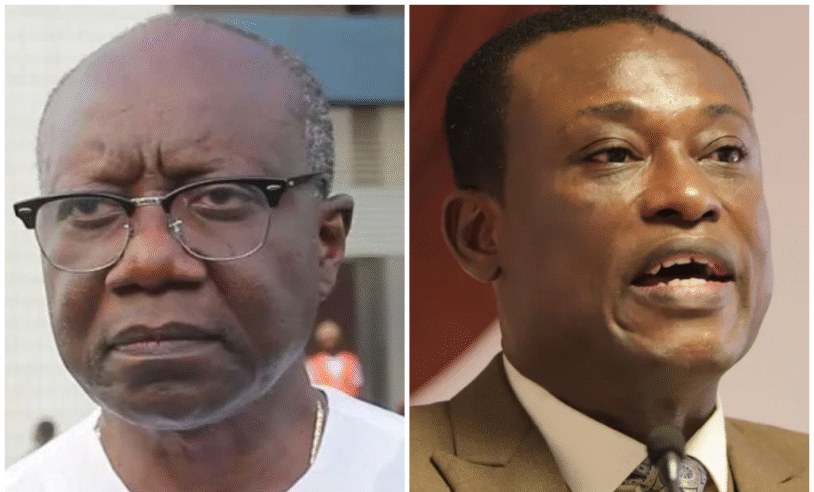SML Demands Probe into OSP Mismanagement Case
By Prince Ahenkorah
The much-anticipated SML-GRA case, featuring former Finance Minister Ken Ofori-Atta and seven co-defendants, has faced a setback as the court adjourned proceedings scheduled for November 24, 2025.
The adjournment, according to sources, stems from serious administrative missteps attributed to the Office of the Special Prosecutor (OSP), leading to mounting frustration over the handling of this high-stakes case.
The case, officially titled CR/0106/2026: The Republic v. Kenneth Nana Yaw Ofori-Atta & Others, has sparked significant public concern, especially given the OSP’s perceived lack of urgency and organization.
The legal representatives for Strategic Mobilization Ghana Limited (SML), the eighth accused, are now calling for a thorough investigation into the case allocation process amid allegations of procedural impropriety.
SML’s attorneys, led by Cephas Boyuoh, Esq., expressed their frustration in a formal letter to the Registrar of the Law Court Complex, highlighting the lack of clarity regarding the assignment of the docket to Criminal Court 3.
Despite having received the charge sheet from the OSP on November 20, the legal team reported being informed by court registry officials that the case had not yet been allocated to a court. A follow-up visit on November 21 yielded the same disconcerting response.
SML’s legal counsel is demanding an investigation that emphasizes the need for transparency given the complexities involved in a case of this magnitude.
They noted that, regardless of the OSP’s assertion that the trial would take place in Criminal Court 3, no official allocation had been made by the court, raising questions about the integrity of the proceedings.
The allegations against Ofori-Atta and his co-defendants include violations of Section 23(1) of the Criminal Offences Act, 1960 (Act 29) and Section 92(2)(b) of the Public Procurement Act, 2003 (Act 663).
The core of the accusations revolves around efforts to corruptly influence the procurement process for government contracts, highlighting the broader implications of the SML-GRA scandal.
SML is not alone in the courtroom; former GRA Commissioner-General Dr. Ammishaddai Owusu-Amoah, former Deputy Commissioner-General Emmanuel Kofi Nti, and other senior officials are also set to face charges alongside fugitive former Finance Minister, Ofori-Atta.
The Special Prosecutor’s office recently announced via social media that the case has been adjourned due to scheduling conflicts, with a new date to be determined.
However, the focus remains firmly on the handling of the case, particularly regarding procedural issues and the allocation of court resources.
Amidst this turmoil, SML has taken it a step further by filing a petition with the Commission on Human Rights and Administrative Justice (CHRAJ), accusing the OSP of “administrative injustice, unfair practices, and human rights violations.”
In a petition dated November 12, signed by CEO Evans Adusei, SML has leveled serious accusations against the OSP, including abuse of power, obstruction of justice, and intimidation.
Central to the allegations is the conduct of Lead Investigator Albert Akurugu, who has allegedly displayed bias throughout the investigation. The petition calls for CHRAJ to subpoena the OSP to produce video evidence of interrogation sessions where threats were reportedly made against SML personnel.
SML claims that Akurugu’s conduct has compromised the integrity of the investigative process, further accusing him of harboring a vendetta against the firm stemming from past decisions linked to the Customs House Agent licenses.
The tension traces back to decisions made in 2017 when certain licenses linked to SML were revoked, further complicating the current investigation landscape.
As allegations of intimidation and misconduct mount, SML is pushing for CHRAJ to conduct a thorough investigation into the OSP’s practices, emphasizing the need for accountability and transparency in managing such high-profile cases.
With the stakes as high as they are, the outcome of these inquiries could significantly influence public confidence in Ghana’s judicial and accountability systems, underscoring the pressing need for integrity and impartiality in the fight against corruption.


